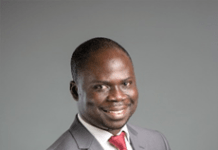
- “One who eats alone cannot discuss the taste of the food with others.” – African proverb
Our biggest challenge with corruption is our inability to speak up about wrong behaviour. For too long, and for the majority among us, we have been quiet about unethical behaviour; and over time it has eroded our ethical compass, which has resulted in our present attitude – a fear of speaking up for what is right and just.
As a matter of fact, many of us endorse unethical behaviour; so much so that it is the norm and we actually participate in it. And why not? We see no one stepping up to speak up; even our moral and religious leaders have been compromised. We have created an unethical lapse and become culturally numb to it.
We need to understand that our unethical attitude started when we were young. Many of us in our schooldays told ‘innocent lies’ to protect our friends and families. We kept quiet about their wrong-doings, refusing to give them up in order to stay in their ‘good books’ and not disappoint ‘our cliques’.
Sometimes we even told ‘white-lies’, and in the process got innocent individuals into troubles because they did not belong in our circles. In all honesty we did not mean evil, but it was evil. As Warren Buffett puts it: “We failed to consult our moral/ethical compass while speeding ahead in a landscape full of tripwires and pitfalls”.
If you want to understand the damage our numbness is causing to our well-being, refer to the instances in your life when your hand or leg has gone numb. Beyond the uncomfortable tingling feeling, you are unable to feel anything. Is it surprising many of us cannot see the good around us in order to lend our support? Such is the reality our appalling attitudes is creating for us. Our greed is blinding us to the good, and it would take a great deal of courage to look in the mirror and recognise how, individually and collectively, we are destroying ourselves. We are suffocating in meaninglessness, and it is chipping away at our well-being.
Since numbness has become our guiding principle, we treat everything as if we are transitioning from one news item to the next. We get information about the plight of the suffering, and do nothing about it because we have to move on to the item. There is no sense of urgency in how we tackle issues because it does not directly affect us.
Take the example of healthcare. We all know the deplorable state of our health system, yet the majority of us would not insist and actually ensure that the right investment is undertaken since we are not presently ill. We only make a semblance of outrage when a relative or a friend succumbs to illness.
It is only then that we rant about the poor standards for two minutes before we shift our focus back to what we can do as individuals to profit from a bad system created by all of us. Is it thus that strange the counsel going round is ‘no one should fall sick, for the system cannot heal you?’ This counsel in itself shows how sick we have become.
Numbness makes us less human, for it erodes our compassion. And when we understand that compassion is as vital to our development as the air we breathe is to life, one realises our level of underdevelopment. Numbness makes us selfish. It destroys our empathy and prevents us from thinking about the good; so much so that we do not even realise our selfish acts hamper our own good. It is our cultural numbness that makes us blame the poor for being poor, instead of the ‘created system’ that only enriches the few. What we do not realise by this attitude is that we erode the self-esteem of others, and ultimately our own happiness.
What makes our dearth of empathy situation scary is that many of us would rather not know about it because it seems incurable. Our situation goes deeper than our political bias and the usual banter about it. But like all human situations, our current cultural numbness is prolonged because many of us are waiting for ‘the leaders’ to rouse us out of it.
Well, the reality is that our leaders benefit from our woes – so they would not consciously bring about the needed change. If they do, they would not be fit to lead you any longer. You are the one who needs to rouse yourself out of the numbness. You have to learn to appreciate the importance of ethics and how they allow all of us to flourish. Only then can you become alive again, and actually speak up against all kinds of evil…
__________________________________________________________________
Kodwo Brumpon is an author, life coach and philanthropist who inspires individuals, groups and organisations to think and feel that which is true by helping them positively respond to that which is beautiful, while nudging them to let goodness govern their actions.
Comments, suggestions and requests should be sent to him at [email protected]









